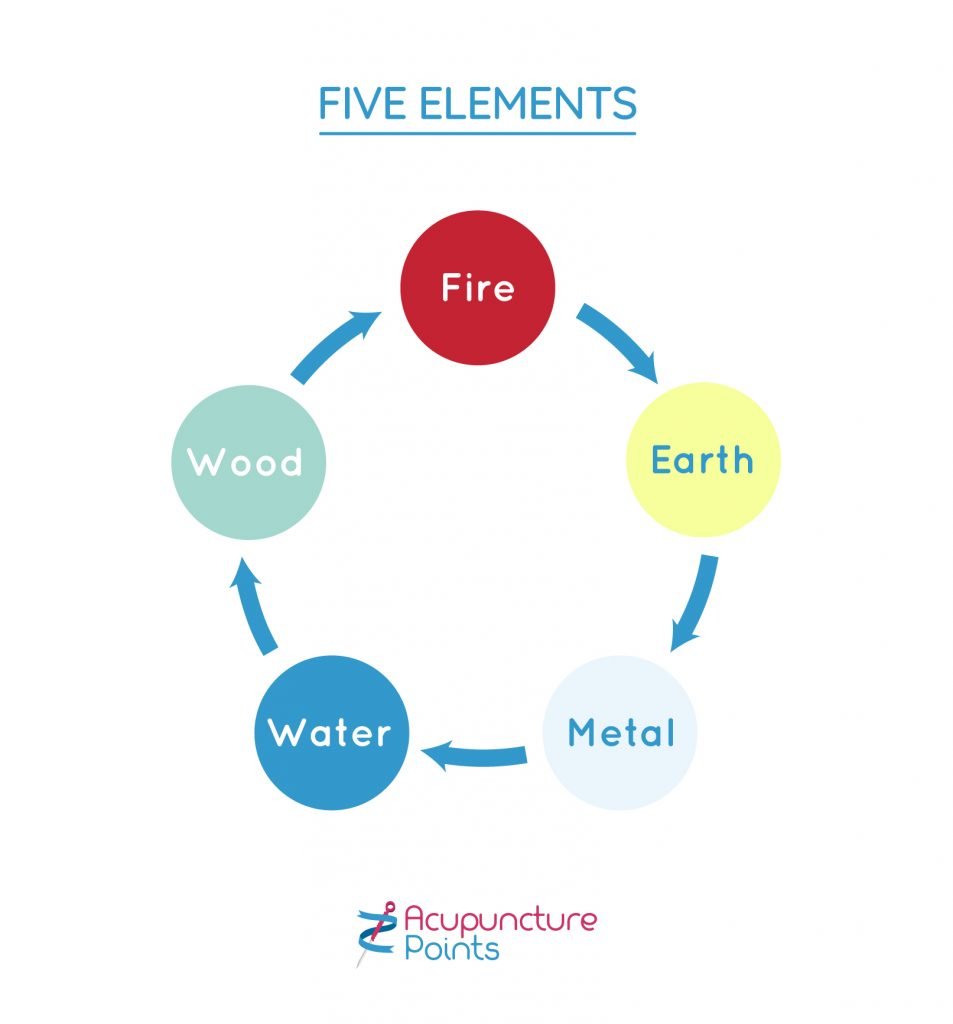Subscribe to the Newsletter
If you are interested in understanding how Traditional Chinese Medicine can improve your life sign up to my newsletter for the latest updates.

Foods classified as having a ‘spicy’ taste in Chinese medicine benefit your Metal phase energy, ie your Lungs and Large Intestine energies.
For more on the question of what ‘taste’ signifies, click on Taste in Chinese medicine.
For more on these important subjects, click Metal Phase, Lung and Large Intestine functions.
Your Metal element, (your Lungs and Large Intestine), looks after a lot more than just your respiration. It covers your ability to obtain Qi and to use it for the health of your body, whether in your digestion or your skin or in your ability to see a wider, deeper meaning to life.
But the Chinese idea of Blood goes further too. First, the red stuff, blood, doesn’t become Blood – in the Chinese sense, until it has been mixed with Oxygen in the lungs and sent on its way by your Heart, both of which happen in your chest, the upper part of your torso.
Blood doesn’t heal and repair, moisten and nourish until your Lungs and Heart give it life. Unless those energies in your Heart and Lungs re-charge it, you won’t’ have the enthusiasm, power or ‘fire’ for life you need. A major part of this comes from your Lungs.
If you don’t eat enough food classified as ‘spicy’, or what you eat is poor quality, (or your digestion is poor): –
Why might these problems afflict you? Read up on the Metal phase.
2500 years ago the Chinese worked this out and noted the foods that benefited the Lung and Large Intestine functions. These they described as having the ‘spicy’ taste.
Not that all such foods always taste spicy, and you must remember that modern tastes have been subverted by artificial flavours so we easily succumb to eating too much of one and not enough of another. All this makes our experience of taste rather lop-sided.

Another problem is that by labelling them ‘spicy’ we expect them to taste spicy and are baffled when they don’t. Perhaps the original authors of the text from which all this experience derives (the Huang Di Nei Ching Su Wen) might, as far as us modern people are concerned, have done better to describe these foods as ‘Metal phase’ foods.
… and never can be because many modern foods and supplements did not exist 2500 years ago, and it can take a while for modern practitioners of Chinese medicine to appreciate the qualities of a ‘new’ food.
Other factors also influence how spicy a given food is, such as
You’ll notice that most foods listed as spicy are naturally warming. Warming is yang, and while your lungs need moistening, they don’t like yin – cold, so for lung health, avoid drinking cold liquids which take warmth from your chest and lungs as they descend to your stomach.
Cold, iced food is the same. Chinese medicine recommends that for health, you avoid cold or iced or chilled food, at least until it has warmed to room temperature or is cooked and hot to taste. In any case, chewing well imparts some warmth from your mouth before swallowing, and grinds food into smaller particles, easier to digest.

Then there’s the question of how you cook the food. Whatever the food’s underlying quality in terms of spiciness and temperature (ie whether warming or cooling) how you cook it changes this:
Spicy taste foods come in different forms and some are more nutritious (in terms of modern nutrition) while others benefit the way your Metal phase, Lung action and Large Intestine function work.
Craving for, or aversion to, spicy food may indicate a problem with your Metal phase or element. Good acupuncture and advice should improve this.
Nowadays, manufacturers add not just salt but hot spices to snacks. Too many such snacks may imbalance how your Lungs and Large intestine function, causing Heat problems ranging from perspiration to diarrhoea. Since your Lungs ‘rule’ your skin, too much spicy food can cause rashes and dryness.
When there is too much heat in your system, you become susceptible to hot-type syndromes (including, for example, Damp-Heat, which you definitely can do without!) which can also make you irritable and touchy, less balanced, less objective than you could be.
As mentioned, too much spicy food will make you perspire. That may help keep you cool in hot climates, but in cold climates perspiration is generally inadvisable, unless from vigorous exercise, and even then, you normally cover up afterwards, quickly. So, if you always crave spicy food, get some acupuncture.
If you feel heavy or slightly sedated after a meal, probably you ate too much or it lacked any spicy elements.

(The Five Element theory suggests that you may be able to ameliorate this heaviness in several ways. One is to take some ginger or turmeric either with or following the meal – say a ginger tea; the other is to have something bitter – which is why you often like a strong coffee after a big meal. However, coffee is not all good – see my page on it.)
For long-term health, do not eat until stuffed! Leave a space. That space is vital so that when you take a deep breath – to help digestion with the extra oxygen – there is somewhere for your lungs to expand into.
Equally, when eating, sit upright, giving your stomach and intestines room. If you eat while stooping or hunched or while lying supine watching television, you probably compress the area, and you breathe more shallowly. Also, there’s less room for food to descend.
Oxygen is vital for good digestion. Indeed, the origin of your Lung acupuncture channel lies in your solar plexus, your stomach area. You need to give it space.
Getting used to this can be hard. Parents like to see their children eating well, knowing that under-eating for too long stunts growth, and some children never get out of the habit of stuffing themselves. Modern advertising influences us to eat more. If you are thin, you may feel you need extra food to keep you warm. If you are over-weight your stomach organ may be over-stretched so doesn’t easily tell you when it’s full. Food is usually warming but if we eat too little, or we eat cold food, we may keep eating, even when full, as our bodies strive for warmth.
After a meal, it is a good idea to go for a gentle walk for a few minutes. This helps the food descend and the exercise makes you breathe, both important for digestion.

Here is a list of ‘spicy foods but! – if you skipped all the above guff, the list is not complete and you’d better crawl back a few paragraphs to find out why.
| aniseed |
| basil |
| bay leaf |
| broccoli |
| cabbage |
| caper |
| caraway seed |
| cardamom |
| cassio fruit |
| cayenne |
| celery |
| chilli |
| chive leaf |
| chive seed |
| cinnamon twig |
| clove |
| coriander leaf |
| coriander seed |
| cumin |
| daikon (mooli) |
| dill seed |
| elderflower drink |
| fennel seed |
| garlic |
|
| ginger (powder) |
| horseradish |
| jasmine |
| juniper |
| kohlrabi |
| leek |
| lemon balm |
| limeflower |
| marjoram |
| mint |
| mustard |
| mustard leaf |
| nutmeg |
| onion |
| oregano |
| parsley |
| parsnip |
| pepper |
| pepper (white and black) |
| peppermint |
| radish |
| rosemary |
| saffron |
| sage |
| savory |
| scallion |
| soya oil |
| spring onion |
| star anise |
| thyme |
| turmeric (curcumin) |
| turnip |
| watercress |
| wine |

Stay in Touch!
No spam, only notifications about new articles and updates.

Book a Video consultation if you want to know more about your symptoms
Other pages to read:

This Introductory Chinese medicine course introduces you to the amazing thinking behind this ancient medicine, now increasingly in demand.

The Scottish College for Chinese medicine provides introductory courses for all, explaining Chinese medicine and its cultural background.

Master Tung’s acupuncture is a hidden treasure, lost to China but recovered in Taiwan from where it spread round the world.

Knee pain has five main causes. It’s certainly worth trying acupuncture before you resort to surgery!
Subscribe to the Newsletter
If you are interested in understanding how Traditional Chinese Medicine can improve your life sign up to my newsletter for the latest updates.
Subscribe to the Newsletter
If you are interested in understanding how Traditional Chinese Medicine can improve your life sign up to my newsletter for the latest updates.